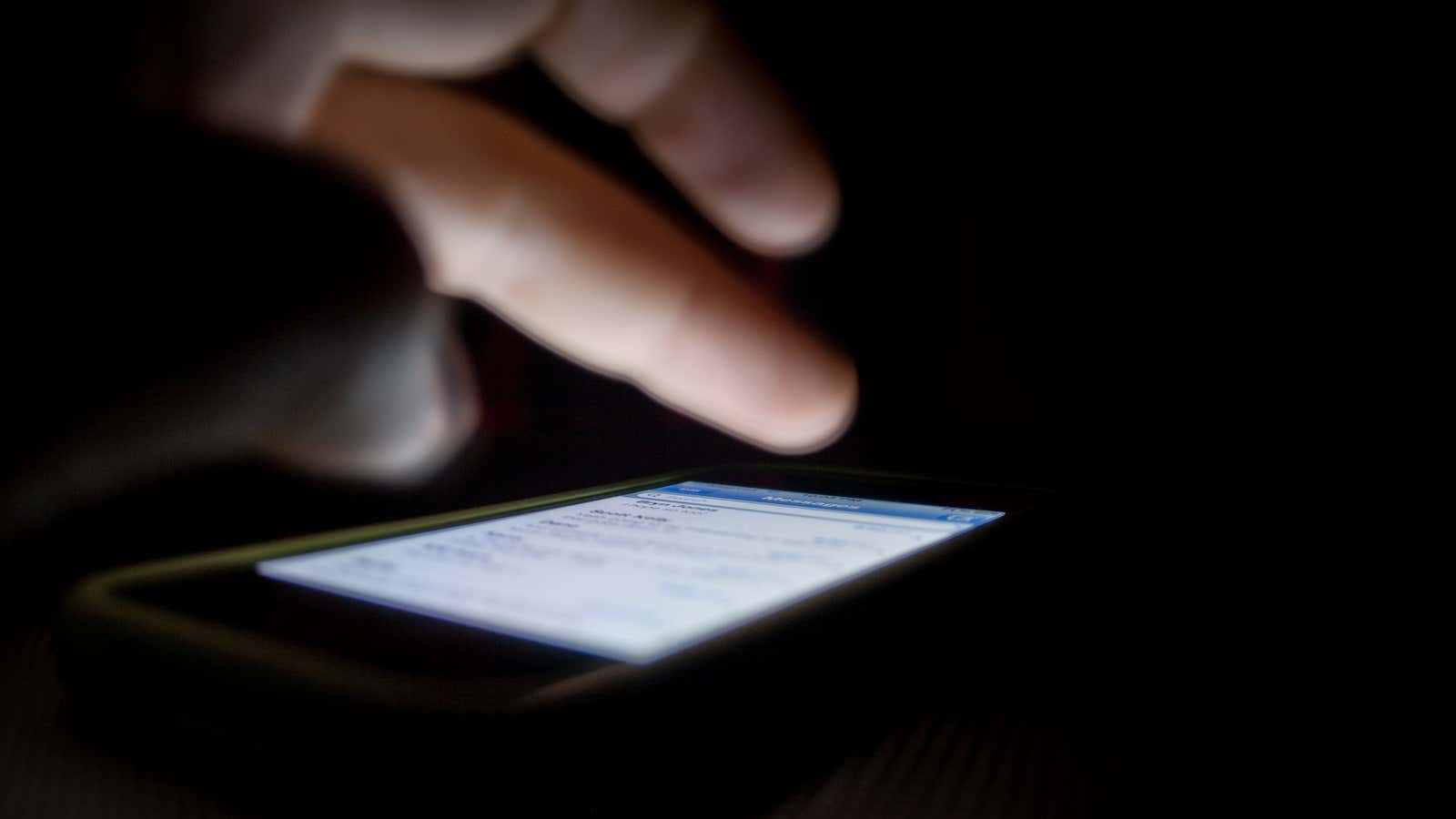iMessage, Apple’s free text messaging service for iPhone users, is great—especially for those still stuck on cellphone plans with limited texting, who can use it to communicate for free. But it’s posing a problem for customers who try to switch from iPhones to Android devices.
Adam Pash, former EIC of Lifehacker, writes on his blog that a switch from iOS to Android left many of his incoming text messages lost in the ether. While his iPhone-using friends saw the messages they sent to him as “delivered,” he never got them. Even when he succeeded in disconnecting his AppleID from his phone number, he still wasn’t receiving the messages.
After a lengthy tech support chat, Pash established that Apple engineers were aware of the problem—and that lots of people were experiencing it. Indeed, at least one user complained of the same issue online a few months ago. But for now, the engineering team has no idea how to fix it, Pash says. We have reached out to Apple for comment, and will update this post if we hear back.
“In the meantime,” Pash writes, “Apple has completely hijacked my text messaging and my phone number portability (portability between devices, not networks). No one can fix this but Apple because it’s a problem at the device level, which means people in my position have no recourse but to wait for Apple to figure out what the problem is.”
And that’s a sticky situation. Apple isn’t offering any public support for users who’ve switched to Android, and they charge $20 for tech support calls if a user no longer has an active Apple device. Essentially, this means that Apple will make former customers pay to fix a problem that Apple has created.
This may all be by design. Apple is a company that relies heavily on its self-created lock-in ecosystem. Emails from the company’s late leader Steve Jobs make it clear that iCloud was intended to further tie products together, compelling users to stay in the Apple family with all of their electronic purchases.
This may be a shrewd business practice. But when that lock-in holds an all-important text from friend (or even worse, a love interest) hostage, it’s hard not to take it as some kind of vindictiveness—or at least lack of regard—on Apple’s part.
